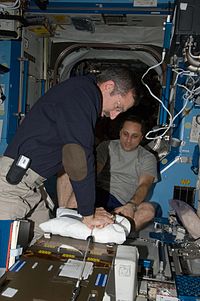
Ongoing neural oscillations predict the post-stimulus outcome of closed loop auditory stimulation during slow-wave sleep
Sign Up to like & getrecommendations! Published in 2022 at "NeuroImage"
DOI: 10.1016/j.neuroimage.2022.119055
Abstract: Large slow oscillations (SO, 0.5-2Hz) characterise slow-wave sleep and are crucial to memory consolidation and other physiological functions. Manipulating slow oscillations may enhance sleep and memory, as well as benefitting the immune system. Closed-loop auditory… read more here.
Keywords: auditory stimulation; slow wave; closed loop; loop auditory ... See more keywords

Changes in cross-frequency coupling following closed-loop auditory stimulation in non-rapid eye movement sleep
Sign Up to like & getrecommendations! Published in 2020 at "Scientific Reports"
DOI: 10.1038/s41598-020-67392-w
Abstract: Regional changes of non-rapid eye movement (NREM) sleep delta and sigma activity, and their temporal coupling have been related to experience-dependent plastic changes during previous wakefulness. These sleep-specific rhythms seem to be important for brain… read more here.
Keywords: loop auditory; auditory stimulation; sleep; non rapid ... See more keywords

Auditory stimulation of sleep slow oscillations modulates subsequent memory encoding through altered hippocampal function
Sign Up to like & getrecommendations! Published in 2019 at "Sleep"
DOI: 10.1093/sleep/zsy240
Abstract: This is an Open Access article distributed under the terms of the Creative Commons Attribution-NonCommercial-NoDerivs licence (http://creativecommons.org/licenses/by-nc-nd/4.0/), which permits non-commercial reproduction and distribution of the work, in any medium, provided the original work is not… read more here.
Keywords: oscillations modulates; modulates subsequent; auditory stimulation; sleep slow ... See more keywords

Hybrid Brain–Computer Interface System Using Auditory Stimulation and Speech Imagination Paradigms for Assistive Technology
Sign Up to like & getrecommendations! Published in 2023 at "IEEE Access"
DOI: 10.1109/access.2023.3280636
Abstract: In the case of paralysis with visual and tactile impairments, brain–computer interfaces (BCIs) based on auditory and mental imagery paradigms are alternative methods for controlling external devices. This study demonstrates the use of a hybrid… read more here.
Keywords: speech imagination; bci; speech; auditory stimulation ... See more keywords

Auditory stimulation and levels of anaesthesia
Sign Up to like & getrecommendations! Published in 2017 at "Anaesthesia"
DOI: 10.1111/anae.13945
Abstract: Jung et al. found that using a patient’s name during recovery from anaesthesia may be an easy and effective method of facilitating this process [1]. Hearing is often described as the ‘last sensation to go… read more here.
Keywords: information; anaesthesia auditory; auditory stimulation; anaesthesia ... See more keywords

40‐Hz auditory stimulation for intracranial interictal activity: A pilot study
Sign Up to like & getrecommendations! Published in 2021 at "Acta Neurologica Scandinavica"
DOI: 10.1111/ane.13437
Abstract: To study the effects of auditory stimuli on interictal epileptiform discharge (IED) rates evident with intracranial monitoring. read more here.
Keywords: interictal activity; activity pilot; auditory stimulation; study ... See more keywords

Optimising sounds for the driving of sleep oscillations by closed‐loop auditory stimulation
Sign Up to like & getrecommendations! Published in 2022 at "Journal of Sleep Research"
DOI: 10.1111/jsr.13676
Abstract: Recent studies have shown that slow oscillations (SOs) can be driven by rhythmic auditory stimulation, which deepens slow‐wave sleep (SWS) and improves memory and the immune‐supportive hormonal milieu related to this sleep stage. While different… read more here.
Keywords: driving sleep; optimising sounds; stimulation; sounds driving ... See more keywords

The promise of portable remote auditory stimulation tools to enhance slow-wave sleep and prevent cognitive decline.
Sign Up to like & getrecommendations! Published in 2023 at "Journal of sleep research"
DOI: 10.1111/jsr.13818
Abstract: Dementia is the seventh leading cause of mortality, and a major source of disability and dependency in older individuals globally. Cognitive decline (and, to a lesser extent, normal ageing) are associated with sleep fragmentation and… read more here.
Keywords: stimulation; auditory stimulation; cognitive decline; slow wave ... See more keywords

Rhythmic auditory stimulation for reduction of falls in Parkinson’s disease: a randomized controlled study
Sign Up to like & getrecommendations! Published in 2019 at "Clinical Rehabilitation"
DOI: 10.1177/0269215518788615
Abstract: Objective: To test whether rhythmic auditory stimulation (RAS) training reduces the number of falls in Parkinson’s disease patients with a history of frequent falls. Design: Randomized withdrawal study design. Subjects: A total of 60 participants… read more here.
Keywords: rhythmic auditory; falls parkinson; group; disease ... See more keywords

Head hemodynamics and systemic responses during auditory stimulation
Sign Up to like & getrecommendations! Published in 2022 at "Physiological Reports"
DOI: 10.14814/phy2.15372
Abstract: The present study aims to analyze the systemic response to auditory stimulation by means of hemodynamic (cephalic and peripheral) and autonomic responses in a broad range of auditory intensities (70.9, 77.9, 84.5, 89.5, 94.5 dBA).… read more here.
Keywords: head; response; auditory stimulation; hemodynamics ... See more keywords

Feasibility of a rhythmic auditory stimulation gait training in community-dwelling adults after TBI: A case report.
Sign Up to like & getrecommendations! Published in 2021 at "NeuroRehabilitation"
DOI: 10.3233/nre-208016
Abstract: BACKGROUND Traumatic brain injury has multiple impacts on gait including decreased speed and increased gait variability. Rhythmic auditory stimulation (RAS) gait training uses the rhythm and timing structure of music to train and ultimately improve… read more here.
Keywords: community; feasibility; rhythmic auditory; gait training ... See more keywords